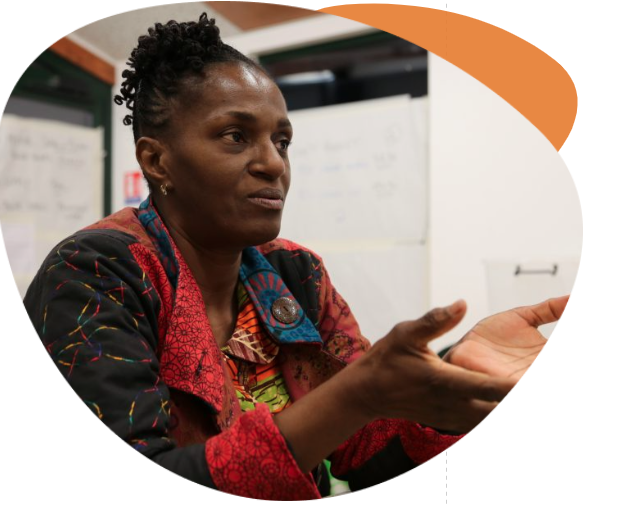Diversity and Humanitarian Negotiation
DOI:
https://doi.org/10.21153/thl2021volno0art1070Keywords:
Diversity, humanitarian negotiation, identity characteristicsAbstract
The humanitarian sector has steadily pushed forward with efforts to cultivate negotiation capacity among aid workers. However, considerations of how the profile of the humanitarian negotiator might shape negotiation outcomes have been, at best, in the background of ongoing professional discussions or, at worst, entirely overlooked. This working paper aims to fill this gap. Based on semi-structured interviews and survey data, this working paper assesses the role of identity characteristics in humanitarian negotiation processes. As the interview and survey results suggest, a negotiator’s profile—including identity characteristics and past professional experiences—can shape counterparts’ perceptions of humanitarian negotiators; fuel humanitarians’ own biases and stereotypes of their interlocutors; and feed into challenging internal organisational dynamics, as humanitarian organisations seek to promote diversity and foster inclusion and belonging among staff.
Downloads
References
Adler R (2005) ‘Flawed thinking: addressing decision biases in negotiation’, Ohio State Journal on Dispute Resolution 20(3): 683–774.
Blackney H et al. (2019) ‘Data on diversity: humanitarian leadership under the spotlight’, Humanitarian Advisory Group, accessed 15 February 2021.
Campbell L, Knox Clarke P (2018) ‘Making operational decisions in humanitarian response: a literature review’, ALNAP, accessed 15 February 2021.
Centre of Competence on Humanitarian Negotiation (2016) ‘Annual meeting of frontline humanitarian negotiators’, accessed 15 February 2021.
—(2017) ‘Second annual meeting of frontline humanitarian negotiators’, accessed 15 February 2021.
—(2018a) ‘Engaging with communities on the frontlines: 3rd annual meeting of frontline humanitarian negotiators’, accessed 15 February 2021.
—(2018b) ‘CCHN field manual on frontline humanitarian negotiation, accessed 15 February 2021.
—(n.d.) ‘About the centre’, accessed 15 February 2021.
Du Pasquier F (2016) ‘Gender diversity dynamics in humanitarian negotiations: the International Committee of the Red Cross as a case study on the frontlines of armed conflicts’, Working Paper, Harvard Humanitarian Initiative, accessed 15 February 2021.
EISF (European Interagency Security Forum) (2018) ‘Managing the security of aid workers with diverse profiles’, accessed 15 February 2021.
Grace R et al. (2015) ‘Understanding humanitarian negotiation: five analytical approaches’, Harvard Humanitarian Initiative, accessed 15 February 2021.
Grace R (2020) ‘The humanitarian as negotiator: developing capacity across the aid sector’, Negotiation Journal 36(1):13–41.
Handicap International (n.d.) ‘Charter on inclusion of persons with disabilities in humanitarian action: update on progress since the World Humanitarian Summit’, accessed 15 February 2021.
Mancini-Griffoli D, Picot A (2004) ‘Humanitarian negotiation: a handbook for securing access, assistance and protection for civilians in armed conflict’, Centre for Humanitarian Dialogue, accessed 15 February 2021.
Mazurana D and Donnelly P (2017) ‘Stop the sexual assault against humanitarian and development aid workers’, Feinstein International Center, accessed 15 February 2021.
Mc Hugh G, Bessler M (2006) ‘Humanitarian negotiations with armed groups: a manual for practitioners’, United Nations, accessed 15 February 2021.
Mercy Corps (2018) ‘Playbook: negotiating for humanitarian access’, accessed 15 February 2021.
Mello AL, Delise LA (2015) ‘Cognitive diversity to team outcomes: the roles of cohesion and conflict management’, Small Group Research 46(2): 204–226.
Miller CC, Burke LM, and Glick WH (1998) ‘Cognitive diversity among upper-echelon executives: implications for strategic decision processes’, Strategic Management Journal 19: 39–58.
Mohammed S, Ringseis E (2001) ‘Cognitive diversity and consensus in group decision making: the role of inputs, processes, and outcomes’, Organizational Behavior and Human Decision Processes 85(2): 310–335.
Olson BJ, Parayitam S, Bao Y (2007) ‘Strategic decision making: the effects of cognitive diversity, conflict, and trust on decision outcomes’, Journal of Management 33(2): 196–222.
Pottier J (2006) ‘Roadblock ethnography: negotiating humanitarian access in Ituri, Eastern DR Conglo 1999–2004’, Africa 76(2): 151–179.
Shore et al. (2011) ‘Inclusion and diversity in work groups: a review and model for future research’, Journal of Management37(4): 1262–1289.
Slim H (2003) ‘Marketing humanitarian space: argument and method in humanitarian persuasion’, Humanitarian Negotiation Network, Centre on Humanitarian Dialogue, accessed 15 February 2021.
van Knippenberg D, De Dreu CKW, Homan AC (2004) ‘Work group diversity and group performance: an integrative model and research agenda’, Journal of Applied Psychology 89(6): 1008–1022.
Varshney A (2003) Ethnic conflict and civic life: Hindus and Muslims in India, Yale University Press, New Haven.







